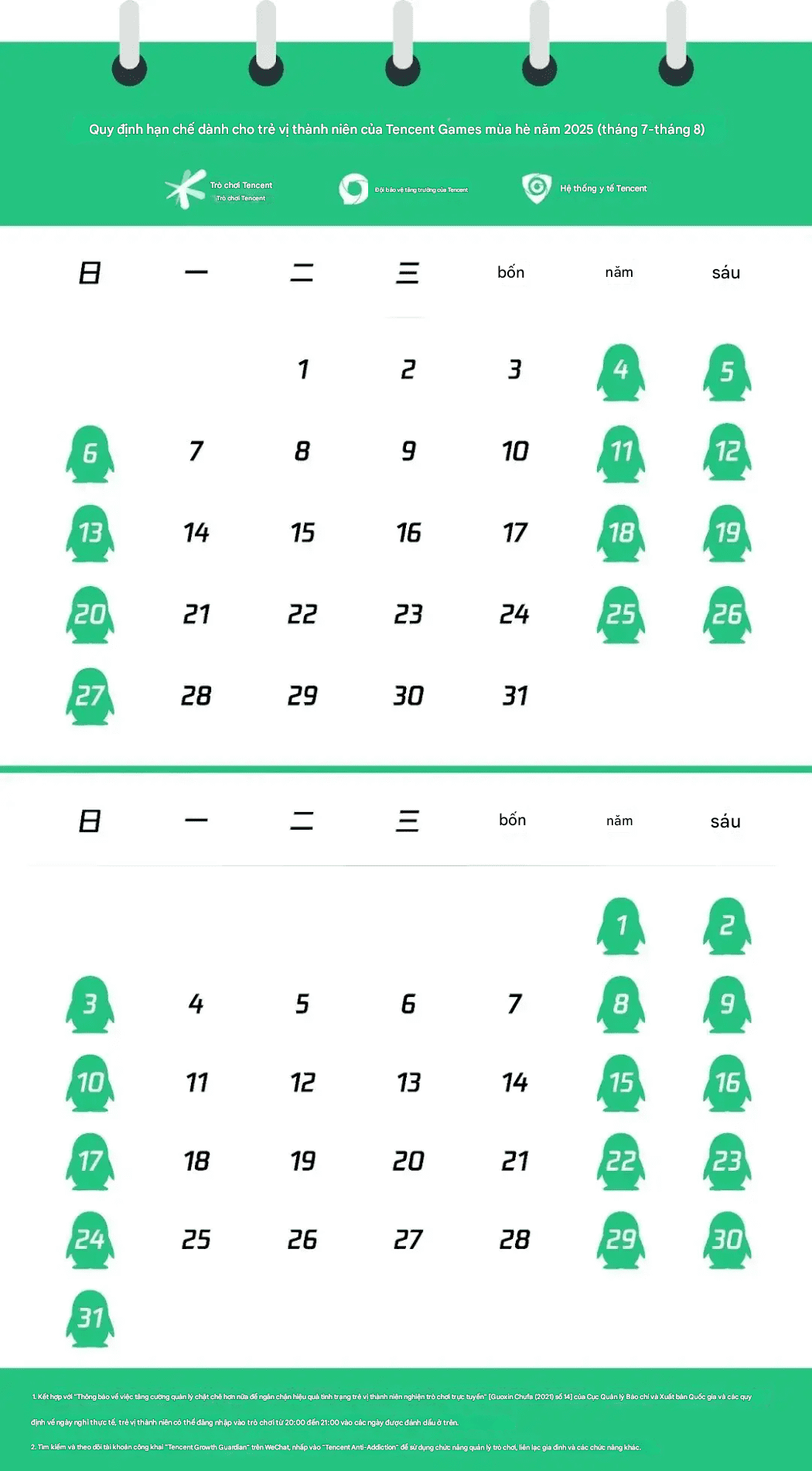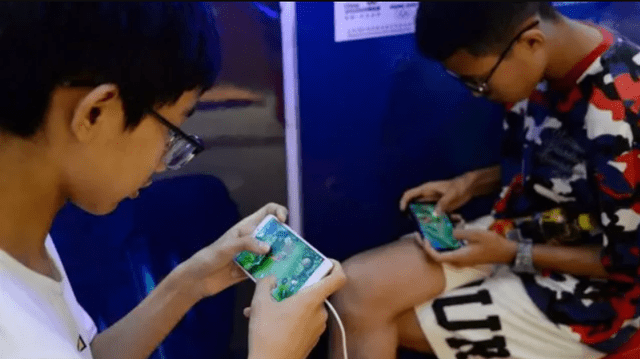Summer is undoubtedly the time when students eagerly anticipate the longest break after a challenging academic year. However, with the latest announcement from Tencent, the summer of 2025 will be significantly different for gamers in China. Throughout the two-month summer break, the group of students will only be allowed to play games for a total of 27 hours – which averages to less than 2 consecutive days of gaming.
Only allowed to play on weekends, 1 hour per day
Specifically, Tencent has issued a new restriction on gaming time for players under 18 during the summer break, effective from July 1 to August 31. According to the regulation, students are only permitted to log in and play games from 8:00 PM to 9:00 PM on Fridays, Saturdays, and Sundays each week. With a total of 27 weekend days during the summer break, the maximum gaming time allowed for students is 27 hours – equivalent to 1 hour per day, 3 days per week.

Not only Tencent, NetEase – one of the largest gaming companies in the Chinese market – is also implementing similar regulations. Both of these giants are firmly committed to limiting gaming time not only to prevent addiction but also to ensure the healthy development of the mental and physical well-being of the younger generation.
NetEase has also introduced a parental control system through “Parental Protection Platform”, allowing parents to monitor gaming time, spending habits, and even impose restrictions on purchases or deposits if deemed necessary. They are also committed to conducting special summer campaigns to prevent behaviors such as account leasing, in-game cheating, or spreading harmful information online.
Tencent’s restrictions spark controversy
From a societal perspective, the stringent management of gaming during the summer has garnered significant support from parents and educators – who are always concerned about the negative impact of gaming on academic performance and student behavior.

However, it cannot be overlooked that for many, gaming is a form of entertainment and a way to connect with friends during their free time. The near-total ban on leisure activities throughout the summer break may cause feelings of pressure or imbalance, especially if there are no suitable alternative activities.
Additionally, as the monitoring measures become increasingly stringent, there is a risk of the emergence of “workarounds” such as account trading, extended gaming times, or switching to platforms not regulated in the country – which could counteract the original goal of ensuring the well-being of younger players.

For game publishers, the drop in the number of players under 18 during the two-month summer period also significantly impacts revenue, forcing them to seek ways to restructure their products or target a broader customer base.
Source: Sohu




















